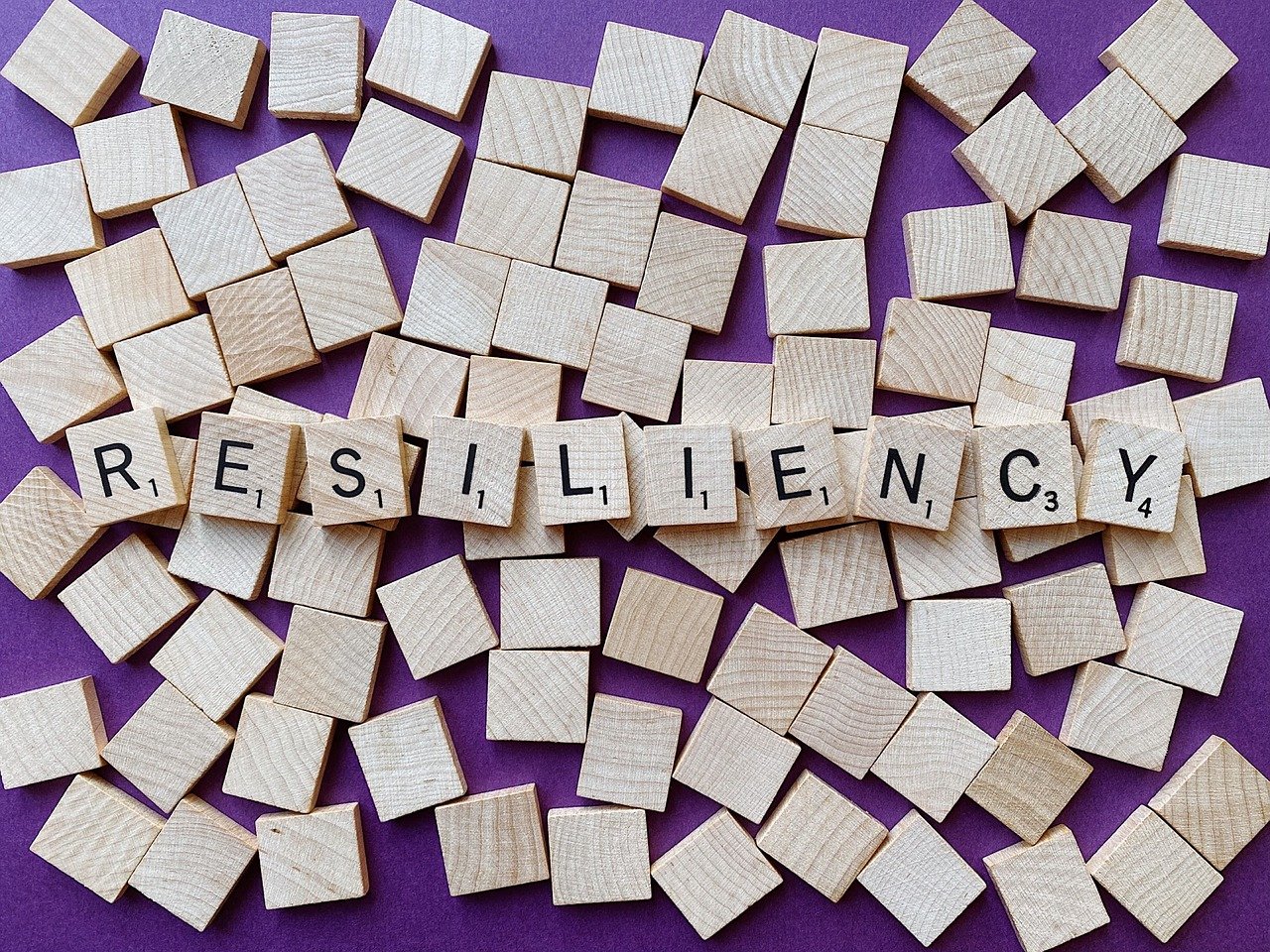The Place of Resilience in Overcoming Addiction
Overcoming addiction is no walk in the park; it’s more like climbing a mountain with slippery rocks and unpredictable weather. In this journey, resilience plays a pivotal role, acting as the safety harness that keeps individuals from falling into the abyss of relapse. So, what exactly is resilience? It’s the ability to bounce back from challenges, adapt to difficult situations, and keep going when the going gets tough. As we delve deeper into this topic, we will explore how resilience can be a game-changer for those grappling with addiction, highlighting effective strategies, personal stories, and the psychological aspects that contribute to recovery.
Imagine resilience as a muscle; the more you work on it, the stronger it becomes. For individuals facing addiction, cultivating this muscle is essential. Resilience not only helps in managing the immediate stressors of recovery but also in building a foundation for long-term sobriety. It’s like having an internal compass that guides you through the fog of cravings and emotional turmoil. Throughout this article, we will uncover various facets of resilience, from understanding its importance to practical techniques that can be employed to enhance it.
As we navigate through the complexities of addiction, we will also touch on the emotional and psychological toll it takes on individuals and their loved ones. Addiction is often accompanied by feelings of guilt, shame, and isolation, which can be overwhelming. However, with resilience, individuals can learn to confront these feelings head-on, transforming their pain into a powerful source of strength. By the end of this article, you will not only grasp the significance of resilience in overcoming addiction but also walk away with actionable strategies to implement in your own life or the life of someone you care about.
Resilience is not just a buzzword; it’s a crucial element in the recovery process. By understanding what resilience entails, individuals can better prepare themselves for the challenges that lie ahead. It encompasses emotional strength, mental agility, and the ability to forge ahead despite setbacks. Just like a rubber band that stretches but doesn’t break, resilient individuals can endure life's pressures while maintaining their integrity and purpose.
In the context of addiction, resilience can be cultivated through various means, such as therapy, support groups, and personal reflection. It’s essential to recognize that resilience doesn’t mean being impervious to stress; rather, it involves acknowledging one’s vulnerabilities and using them as a stepping stone towards growth. Think of it as a garden where resilience is the soil that nourishes the seeds of recovery. With the right care and attention, those seeds can blossom into a thriving life free from the chains of addiction.
Addiction is a multifaceted issue that doesn’t just affect the individual; it ripples through families, friendships, and communities. The psychological and emotional toll is immense, often leaving a wake of destruction that can take years to mend. For many, the battle with addiction can feel like being caught in a storm, with waves of despair crashing down at every turn. This is where resilience becomes not just beneficial, but essential.
One of the most profound emotional consequences of addiction is the overwhelming sense of guilt and shame that often accompanies it. Individuals may feel like they’ve let themselves and their loved ones down, leading to a deep sense of isolation. However, resilience can serve as a lighthouse in this storm, guiding individuals through their darkest hours. By fostering emotional awareness and understanding, those in recovery can learn to navigate these turbulent feelings, transforming shame into empowerment.
Emotional awareness is the bedrock of resilience. It involves recognizing and understanding one’s emotions and reactions. Techniques such as journaling, mindfulness, and therapy can help individuals develop this crucial skill. By becoming more attuned to their emotional landscape, individuals can anticipate triggers and respond to them more effectively, reducing the risk of relapse.
Effective emotional regulation strategies are vital in enhancing resilience. Techniques such as deep breathing, meditation, and physical exercise can provide immediate relief from emotional distress. By incorporating these practices into daily routines, individuals can create a buffer against the intense emotions that often accompany recovery. It’s like having a toolbox filled with various tools, each designed to tackle specific challenges along the recovery journey.
No one should have to face addiction alone. The role of social support systems cannot be overstated. Friends, family, and support groups provide a network of encouragement and accountability. They can help individuals build resilience by offering a sense of belonging and understanding. After all, we are social creatures, and having a strong support system can make all the difference in the world. It’s like having a safety net below you as you navigate the tightrope of recovery.
Now that we’ve established the importance of resilience, let’s explore some practical techniques to enhance it. These strategies are not just theoretical; they are actionable steps that can be integrated into daily life. From mindfulness practices to setting realistic goals, each technique is designed to empower individuals in their recovery journey.
Mindfulness is more than just a trendy buzzword; it’s a powerful tool for improving resilience. By staying present and fully engaged in the moment, individuals can reduce stress and anxiety, which are often catalysts for relapse. Practices such as meditation, yoga, and mindful breathing can help cultivate a state of calm and clarity, allowing individuals to approach challenges with a focused mindset.
Setting achievable goals is another crucial resilience-building technique. It fosters a sense of accomplishment and progress, which can be incredibly motivating. By breaking down larger goals into smaller, manageable steps, individuals can create a roadmap for their recovery. This approach not only helps in maintaining focus but also instills a sense of hope and purpose.
- What is resilience in the context of addiction? Resilience refers to the ability to bounce back from challenges and setbacks during recovery from addiction.
- How can I build resilience? Techniques such as mindfulness, emotional awareness, and setting realistic goals can help enhance resilience.
- Why is social support important in recovery? Social support provides encouragement, accountability, and a sense of belonging, which are vital for building resilience.
- Can resilience prevent relapse? While resilience cannot guarantee prevention, it equips individuals with the tools to manage stress and emotional challenges, reducing the likelihood of relapse.

Understanding Resilience
Resilience is often described as the ability to bounce back from adversity, but it goes much deeper than that. It's not just about surviving tough times; it's about thriving in the face of challenges. Imagine a rubber band: when you stretch it, it may seem to lose its shape temporarily, but once you release it, it returns to its original form. Similarly, resilient individuals may experience hardships, yet they possess the inner strength to recover and even grow stronger from those experiences.
The importance of resilience cannot be overstated, especially for those battling addiction. When faced with the overwhelming pressures of substance dependence, resilience acts as a protective shield, allowing individuals to navigate the turbulent waters of recovery. It fosters a mindset that embraces challenges as opportunities for growth rather than insurmountable obstacles. By cultivating resilience, individuals can develop a more positive outlook on their recovery journey, which is crucial for long-term success.
But how can resilience be cultivated? It starts with self-awareness and a willingness to embrace change. Individuals facing addiction can enhance their resilience by:
- Understanding their triggers and emotional responses
- Building a supportive network of friends and family
- Practicing self-care and mindfulness techniques
- Setting realistic and achievable goals
Each of these elements contributes to a stronger, more resilient mindset. For instance, by recognizing triggers, individuals can better prepare themselves to face challenges without resorting to substances. Building a supportive network ensures that they have people to turn to during tough times, while self-care practices help maintain emotional and physical well-being.
In summary, resilience is not an innate trait but a skill that can be developed. It plays a critical role in overcoming addiction, allowing individuals to face their struggles head-on and emerge stronger. The journey of recovery is not easy, but with resilience, it becomes a path of growth and transformation.

The Impact of Addiction on Individuals
Addiction is like a storm that sweeps through the lives of those it touches, leaving chaos and destruction in its wake. It doesn’t just affect the individual battling the addiction; it ripples out, impacting families, friends, and entire communities. The psychological and emotional toll of addiction is profound, often leading to a cascade of negative consequences that can feel insurmountable. Understanding these impacts is crucial for fostering resilience and paving the way towards recovery.
At its core, addiction alters the brain's chemistry, leading to compulsive behaviors and a relentless pursuit of substances or activities that provide temporary relief or pleasure. This shift can cause a myriad of emotional and psychological issues, including anxiety, depression, and a deep sense of hopelessness. Individuals may find themselves trapped in a cycle of addiction, where the initial high is followed by a crash that leaves them feeling worse than before. This emotional rollercoaster can lead to feelings of guilt and shame, further entrenching the individual in their addiction.
Moreover, the impact of addiction extends beyond the individual. Families often bear the brunt of this burden, experiencing a range of emotional responses such as anger, confusion, and grief. Relationships can become strained or severed altogether, leaving both the individual and their loved ones feeling isolated. It’s essential to recognize that addiction is not just a personal struggle; it’s a family disease that affects everyone involved.
To illustrate the various impacts of addiction on individuals and their families, consider the following table:
| Impact Area | Individual | Family |
|---|---|---|
| Emotional Health | Increased anxiety, depression, guilt, and shame | Feelings of anger, confusion, and helplessness |
| Relationships | Strained relationships with friends and family | Breakdown of trust and communication |
| Financial Stability | Potential job loss and financial strain | Increased financial burden on family members |
| Physical Health | Declining physical health and increased risk of disease | Worry and stress about the individual’s health |
As we can see, the effects of addiction are multifaceted, affecting emotional well-being, relationships, financial stability, and physical health. This interconnectedness highlights the necessity of resilience in the recovery process. Resilience acts as a buffer against the storm of addiction, providing individuals with the strength to confront their challenges head-on and seek the support they need. It’s about finding the courage to face the emotional turmoil and rebuilding relationships with loved ones, ultimately leading to a healthier and more fulfilling life.
In conclusion, while the impact of addiction can be devastating, understanding these effects is the first step toward recovery. By fostering resilience, individuals can begin to navigate the complex emotional landscape of addiction, paving the way for healing not only for themselves but also for their families and communities.
- What is resilience in the context of addiction? Resilience refers to the ability to adapt and recover from adversity, particularly in the face of challenges posed by addiction.
- How can families support a loved one struggling with addiction? Families can provide emotional support, encourage open communication, and seek professional help together to foster a supportive environment.
- Are there specific techniques to build resilience? Yes! Techniques include mindfulness practices, setting realistic goals, and developing emotional awareness.
- What role does emotional regulation play in recovery? Emotional regulation helps individuals manage their feelings, reducing the risk of relapse and enhancing overall resilience.

Emotional Consequences of Addiction
Addiction is not just a physical battle; it’s a deeply emotional one that can leave scars far beyond the substances themselves. When someone struggles with addiction, they often find themselves engulfed in a whirlwind of guilt, shame, and isolation. These feelings can create a vicious cycle, where the emotional pain drives the individual back to their substance of choice, seeking relief but ultimately deepening their despair. It’s a paradox that many find themselves trapped in: the very thing they turn to for comfort ends up amplifying their emotional turmoil.
One of the most significant emotional consequences of addiction is the overwhelming sense of guilt. Many individuals battling addiction feel a profound sense of disappointment in themselves for not being able to control their urges. They often think, "Why can’t I just stop?" This self-recrimination can lead to a downward spiral, where guilt morphs into shame, making it even harder to reach out for help. Shame is a powerful emotion that can isolate individuals, making them feel as if they are unworthy of love or support. This isolation can further exacerbate their addiction, creating a self-perpetuating cycle that is incredibly difficult to break.
Moreover, the emotional toll of addiction doesn’t just affect the individual; it ripples outwards, impacting family and friends. Loved ones may feel helpless, frustrated, or even angry, leading to strained relationships. This dynamic can create a sense of loneliness for the person struggling with addiction, as they may feel they are a burden to those they care about. The emotional consequences can be so profound that they may lead to mental health issues such as anxiety and depression, making recovery seem like an insurmountable challenge.
But here’s where resilience steps in as a beacon of hope. Resilience is the ability to bounce back from these emotional setbacks, to learn from the pain, and to find strength in vulnerability. It’s about recognizing that while these feelings are valid, they do not define the individual. By cultivating resilience, one can navigate through the storm of emotions that addiction brings. Techniques such as emotional awareness and emotional regulation can help individuals manage their feelings more effectively, allowing them to break free from the chains of guilt and shame.
In the journey of recovery, it’s essential to acknowledge these emotional consequences. They are not just hurdles to overcome; they are part of the healing process. Understanding that it’s okay to feel lost or overwhelmed is crucial. With the right support and resilience-building techniques, individuals can learn to transform their emotional pain into a source of strength, paving the way for a brighter future.
- What is the first step to overcoming addiction? The first step often involves acknowledging the problem and seeking help, whether through therapy, support groups, or medical assistance.
- How can I support a loved one struggling with addiction? Offering emotional support, being non-judgmental, and encouraging them to seek professional help can be vital.
- What role does therapy play in recovery? Therapy can provide a safe space to explore underlying issues, develop coping strategies, and build resilience.
- Can resilience be learned? Yes, resilience can be cultivated through various techniques such as mindfulness, goal-setting, and emotional regulation.

Building Emotional Awareness
Building emotional awareness is like turning on a light in a dark room; it illuminates feelings that may have been lurking in the shadows, allowing individuals to understand and confront their emotions head-on. For those battling addiction, developing this awareness is crucial as it lays the foundation for resilience. When you can identify what you’re feeling, you’re better equipped to manage those feelings, rather than being overwhelmed by them. Think of emotional awareness as a compass that guides you through the tumultuous waters of recovery.
So, how does one cultivate this essential skill? The journey begins with self-reflection. Taking time to pause and ask yourself questions like, “What am I feeling right now?” or “Why did that situation trigger such a strong reaction?” can lead to profound insights. Journaling can be an excellent tool for this; it provides a safe space to express emotions and track patterns over time. You might find it helpful to create a simple table to categorize your feelings and identify triggers:
| Date | Emotion | Trigger | Response |
|---|---|---|---|
| 2023-10-01 | Anger | Argument with a friend | Isolated myself |
| 2023-10-02 | Sadness | Missing family | Called a loved one |
Another powerful method to enhance emotional awareness is through mindfulness practices. Mindfulness encourages individuals to observe their thoughts and feelings without judgment. By practicing mindfulness meditation, you can train your mind to recognize emotional states as they arise, giving you the space to respond thoughtfully rather than react impulsively. This practice not only fosters emotional awareness but also reduces stress and anxiety, which can be particularly beneficial during recovery.
Additionally, consider engaging in open conversations with trusted friends or family members about your feelings. Sharing your experiences can provide new perspectives and insights that you might not have considered. Remember, vulnerability is a strength, not a weakness. When you express your feelings, you not only validate your emotions but also strengthen your support network, which is vital for resilience.
In summary, building emotional awareness is a continuous process that involves self-reflection, mindfulness, and open communication. By actively engaging in these practices, individuals can transform their relationship with their emotions, paving the way for a more resilient and fulfilling recovery journey.

Strategies for Emotional Regulation
When it comes to overcoming addiction, emotional regulation is a vital skill that can significantly enhance resilience. It’s like having a toolkit that equips you to manage the rollercoaster of emotions that often accompany recovery. Imagine standing at the edge of a turbulent ocean, with waves of anxiety, anger, or sadness crashing down. Without the right strategies, it’s easy to feel overwhelmed and swept away. But with effective emotional regulation techniques, you can learn to navigate these waves, staying afloat and moving forward.
One effective strategy is deep breathing exercises. These exercises can help calm the mind and body, creating a sense of peace amidst chaos. When you feel the storm of emotions rising, taking a moment to focus on your breath can ground you. Try this: inhale deeply for a count of four, hold for four, and exhale for four. Repeat this several times, and you may find that the intensity of your feelings begins to dissipate.
Another powerful approach is cognitive restructuring. This technique involves identifying negative thought patterns and challenging them. For instance, if you catch yourself thinking, “I’ll never overcome this,” pause and reframe that thought. Replace it with something more empowering, like “I have the strength to overcome challenges.” This shift in perspective can make a world of difference, allowing you to regain control over your emotions and actions.
Additionally, incorporating physical activity into your routine can be an excellent way to regulate emotions. Exercise releases endorphins, which are natural mood lifters. Whether it’s a brisk walk, a dance class, or hitting the gym, moving your body can help release pent-up emotions and reduce stress. Think of it as shaking off the weight of addiction, making space for positivity and resilience.
Lastly, consider the power of journaling. Writing down your feelings can provide a safe outlet for expressing what you’re going through. It’s like having a conversation with yourself, allowing you to process emotions without judgment. You might also find it helpful to keep a gratitude journal, where you note down things you’re thankful for each day. This practice can shift your focus from negativity to positivity, fostering a more resilient mindset.
In summary, mastering emotional regulation is a journey that requires practice and patience. By embracing techniques like deep breathing, cognitive restructuring, physical activity, and journaling, you can build a solid foundation of resilience. Remember, it’s not about suppressing your emotions but learning to manage them effectively. With these strategies in your toolkit, you’ll be better equipped to face the challenges of addiction recovery.
- What is emotional regulation? Emotional regulation refers to the ability to manage and respond to emotional experiences in a healthy way.
- Why is emotional regulation important in addiction recovery? It helps individuals manage intense feelings that can lead to relapse, promoting a more stable and resilient recovery process.
- Can mindfulness help with emotional regulation? Yes, mindfulness practices can enhance emotional awareness and help individuals respond to emotions more effectively.
- What are some other strategies for emotional regulation? Other strategies include seeking social support, engaging in creative activities, and practicing self-compassion.

Social Support Systems
When it comes to overcoming addiction, the importance of cannot be overstated. Imagine trying to climb a mountain without a safety rope or a guide; that’s what battling addiction can feel like without a solid support network. Friends, family, and community members play a crucial role in recovery, acting as lifelines that help individuals navigate the treacherous terrain of addiction. These connections provide not only emotional support but also practical assistance, creating a safety net that can catch those who might otherwise fall back into old habits.
Support systems can take many forms, from close family ties to friendships forged in recovery programs. Each type of support serves a unique purpose. For instance, family members can offer unconditional love and understanding, while friends who have experienced similar struggles can provide empathy and shared experiences. This dual approach enhances resilience, as individuals feel less isolated and more connected to others who understand their journey. Here are a few key aspects of how social support systems contribute to recovery:
- Emotional Stability: Having someone to talk to about feelings of doubt or anxiety can significantly reduce emotional burdens. This support helps individuals process their emotions and reinforces their commitment to recovery.
- Accountability: Friends and family can help hold individuals accountable for their recovery goals, encouraging them to stay on track and reminding them of their progress.
- Resource Sharing: Support systems often provide access to resources such as therapy, support groups, and community programs, which can be invaluable in the recovery process.
Building a strong social support system requires effort and intention. It’s not just about surrounding oneself with people; it’s about fostering relationships that are genuinely supportive and nurturing. For some, this might mean reconnecting with family members, while for others, it could involve joining support groups or community organizations. The key is to actively seek out connections that promote a sense of belonging and understanding.
Additionally, it’s essential to recognize that not all social interactions are beneficial. Sometimes, relationships can be toxic or enable negative behaviors. Therefore, individuals in recovery must learn to identify which relationships uplift them and which ones may hinder their progress. This discernment is part of developing emotional intelligence, which ties back into the broader theme of resilience.
In conclusion, social support systems are a fundamental aspect of overcoming addiction. They provide emotional, practical, and psychological benefits that bolster resilience and encourage recovery. By actively engaging with supportive individuals, those battling addiction can create a network that not only helps them stay sober but also enhances their overall quality of life.
1. What is a social support system?
A social support system refers to the network of family, friends, and community members that provide emotional and practical support to individuals, particularly during challenging times such as recovery from addiction.
2. How can I build a strong social support system?
Building a strong support system involves seeking out positive relationships, joining support groups, and reconnecting with family and friends who are understanding and encouraging of your recovery journey.
3. What if my current social circle is not supportive?
If your current social circle is not supportive, consider seeking new connections through recovery programs, community organizations, or online support groups where you can meet others who share similar experiences.
4. How does social support affect recovery?
Social support positively impacts recovery by providing emotional stability, accountability, and access to resources, all of which enhance resilience and reduce the risk of relapse.

Resilience-Building Techniques
Building resilience is like strengthening a muscle; the more you work at it, the stronger it becomes. For individuals battling addiction, having a toolbox of resilience-building techniques can make a world of difference. These techniques not only help in navigating the tumultuous waters of recovery but also empower individuals to face future challenges head-on. One of the most effective strategies is mindfulness. Mindfulness practices encourage individuals to stay present and engaged with their thoughts and feelings without judgment. This can be incredibly helpful in reducing anxiety and stress, which are often triggers for relapse.
In addition to mindfulness, setting realistic goals can foster a sense of accomplishment and motivation. When individuals set achievable goals, they create a roadmap for their recovery journey. This roadmap, filled with small victories, can significantly enhance their resilience. For instance, instead of setting a broad goal like "I want to be sober," a more specific goal could be "I will attend three support meetings this week." This not only provides clarity but also breaks down the recovery process into manageable steps.
Another key technique is the use of positive affirmations. These are powerful statements that help to challenge and overcome self-sabotaging thoughts. By repeating affirmations such as "I am capable of change" or "I deserve a healthy life," individuals can rewire their thinking patterns. This practice not only boosts self-esteem but also reinforces the belief in their ability to overcome addiction.
Furthermore, engaging in physical activities can also play a significant role in building resilience. Exercise releases endorphins, which are natural mood lifters. It’s not just about getting fit; it’s about creating a positive mental state that can shield against the emotional turmoil often associated with addiction recovery. Whether it's a brisk walk in the park or a vigorous workout at the gym, moving the body can help clear the mind and strengthen resolve.
Lastly, it’s essential to develop a strong support network. Surrounding oneself with positive influences and people who understand the journey can provide encouragement and accountability. This social support system acts as a safety net, catching individuals when they stumble and cheering them on as they rise again. Remember, resilience isn’t just about bouncing back; it’s about bouncing forward, learning from each experience, and growing stronger in the process.
- What is resilience, and why is it important in addiction recovery?
Resilience is the ability to recover from setbacks. In addiction recovery, it helps individuals cope with challenges and reduces the risk of relapse. - How can mindfulness practices aid in building resilience?
Mindfulness helps individuals stay present, reduces stress, and enhances emotional regulation, making it easier to navigate the recovery journey. - What types of realistic goals should I set during recovery?
Realistic goals can include attending support meetings, practicing self-care, or engaging in healthy activities that promote well-being. - How do positive affirmations work?
Positive affirmations challenge negative thoughts, boost self-esteem, and reinforce a belief in one's ability to change and succeed.

Mindfulness Practices
Mindfulness practices are essential tools in the journey toward overcoming addiction, acting as a beacon of hope in turbulent waters. Imagine standing at the edge of a stormy sea, the waves crashing around you, and then finding your center amidst the chaos. That's what mindfulness can do for individuals battling addiction—it helps them anchor themselves in the present moment, reducing the overwhelming feelings that often accompany recovery. By focusing on the here and now, individuals can cultivate a sense of calm and clarity, which is vital for making healthier choices.
One of the most effective mindfulness practices is **meditation**. This ancient technique allows individuals to sit quietly, observe their thoughts and feelings without judgment, and gradually learn to detach from the emotional rollercoaster of addiction. Regular meditation can lead to profound changes in the brain, enhancing emotional regulation and decreasing stress levels. Research has shown that even just a few minutes of meditation each day can significantly improve resilience and emotional stability.
Another powerful mindfulness practice is **breath awareness**. By simply focusing on the breath—paying attention to the inhalation and exhalation—individuals can ground themselves and alleviate feelings of anxiety. This practice is particularly useful during moments of cravings or emotional distress. When the urge to use substances arises, taking a moment to breathe deeply can create a pause, allowing for a more thoughtful response rather than a knee-jerk reaction. Consider this analogy: just as a tree stands firm in a storm, breath awareness helps individuals remain steady when faced with the winds of temptation.
Incorporating **mindful movement** can also be beneficial. Activities like yoga and tai chi not only promote physical health but also encourage a deeper connection between the mind and body. These practices foster resilience by teaching individuals to listen to their bodies, recognize stress signals, and respond with compassion rather than self-criticism. This holistic approach nurtures both physical and emotional well-being, reinforcing the idea that recovery is not just about abstaining from substances but about embracing a healthier lifestyle.
To effectively integrate mindfulness into daily life, individuals can create a structured plan. Here’s a simple table to illustrate how to incorporate mindfulness practices into a weekly routine:
| Day | Mindfulness Practice | Duration |
|---|---|---|
| Monday | Meditation | 10 minutes |
| Tuesday | Breath Awareness | 5 minutes |
| Wednesday | Yoga | 30 minutes |
| Thursday | Walking Meditation | 15 minutes |
| Friday | Journaling Thoughts | 10 minutes |
| Saturday | Guided Meditation | 20 minutes |
| Sunday | Mindful Eating | During meals |
By following a routine like this, individuals can slowly build their mindfulness muscle, making it easier to navigate the ups and downs of recovery. Remember, mindfulness is not about perfection; it’s about progress. Each small step taken toward being present can lead to significant changes in how one experiences life and responds to challenges.
In conclusion, embracing mindfulness practices can be a transformative experience for those overcoming addiction. By cultivating awareness, individuals can break free from the cycle of negative thoughts and behaviors, paving the way for a more resilient and fulfilling life. So, why not take a moment today to breathe, reflect, and embrace the present? After all, the journey of a thousand miles begins with a single step—one mindful breath at a time.
- What is mindfulness? Mindfulness is the practice of being fully present and engaged in the moment, without judgment. It helps in reducing stress and enhancing emotional regulation.
- How can mindfulness help with addiction recovery? Mindfulness helps individuals become more aware of their thoughts and feelings, allowing them to manage cravings and emotional triggers more effectively.
- Do I need to meditate for long periods to see benefits? No, even short sessions of mindfulness or meditation can be beneficial. Consistency is more important than duration.
- Can mindfulness practices be done anywhere? Yes! Mindfulness can be practiced in various settings, whether at home, work, or even while commuting.

Setting Realistic Goals
When it comes to overcoming addiction, setting realistic goals is like having a roadmap for your recovery journey. Imagine trying to navigate a new city without a map—confusing, right? Similarly, without clear and achievable goals, the path to recovery can feel overwhelming and aimless. Setting these goals not only helps in tracking progress but also fosters a sense of accomplishment, which is crucial for building resilience. So, how do we set these realistic goals? It’s all about being specific, measurable, attainable, relevant, and time-bound—often referred to as the SMART criteria.
To begin with, it’s important to break down larger goals into smaller, manageable steps. For instance, if your ultimate goal is to maintain sobriety for a year, a more realistic short-term goal could be to stay sober for one week. Each week you achieve this, you can celebrate your success, reinforcing your commitment and boosting your resilience. This approach not only makes the journey less daunting but also allows you to recognize and appreciate the progress you’re making.
Another effective strategy is to write down your goals. Putting pen to paper not only clarifies your intentions but also serves as a constant reminder of what you’re working towards. Consider creating a visual representation of your goals, perhaps through a vision board or a goal chart. This can be a fun and creative way to keep your aspirations front and center in your mind.
Moreover, it’s crucial to remain flexible. Life is unpredictable, and setbacks may occur. If you find that a goal isn’t working for you, don’t hesitate to adjust it. For example, if you aimed to attend three support group meetings a week but found it overwhelming, reducing that number to one or two can still be beneficial. The key is to stay committed to your overall recovery while allowing yourself the grace to adapt.
Incorporating social support into your goal-setting can also enhance your resilience. Share your goals with trusted friends or family members who can provide encouragement and hold you accountable. They can help remind you of your progress and celebrate your wins, no matter how small. This social component adds another layer of motivation and can be incredibly uplifting during tough times.
Lastly, remember that recovery is a marathon, not a sprint. Setting realistic goals is not just about reaching a destination; it’s about enjoying the journey. Celebrate every milestone along the way, and don’t forget to practice self-compassion. After all, every step you take, no matter how small, is a victory in itself.
- What are SMART goals? SMART goals are Specific, Measurable, Attainable, Relevant, and Time-bound objectives that help in creating clear and achievable goals.
- How can I stay motivated while pursuing my goals? Keeping a journal, celebrating small victories, and sharing your goals with supportive friends or family can help maintain your motivation.
- What should I do if I experience a setback? It’s important to remember that setbacks are a normal part of the recovery process. Reflect on what led to the setback, adjust your goals if necessary, and continue moving forward.
Frequently Asked Questions
- What is resilience, and why is it important in overcoming addiction?
Resilience is the ability to bounce back from challenges and setbacks. In the context of overcoming addiction, it plays a crucial role because it helps individuals cope with the emotional and psychological struggles they face during recovery. A resilient person is more likely to stay committed to their recovery journey, even when confronted with obstacles.
- How can I cultivate resilience while dealing with addiction?
Cultivating resilience involves several strategies, such as developing emotional awareness, building a strong support network, and practicing mindfulness. Engaging in self-reflection and setting realistic goals can also enhance your ability to recover from setbacks. Remember, resilience is like a muscle; the more you work on it, the stronger it becomes!
- What are the emotional consequences of addiction?
Addiction can lead to feelings of guilt, shame, and isolation. These emotions can weigh heavily on individuals, making recovery feel even more daunting. However, resilience can act as a buffer, helping individuals process these feelings and move forward in their recovery journey.
- How does social support contribute to resilience?
Social support is vital for building resilience. Friends, family, and support groups can provide encouragement, understanding, and accountability. Having a solid support system allows individuals to share their experiences, which can significantly lighten the emotional burden of addiction.
- What are some practical techniques to enhance resilience?
Some effective techniques include mindfulness practices, setting realistic goals, and using positive affirmations. Mindfulness helps individuals stay present and manage stress, while achievable goals foster a sense of accomplishment, reinforcing the belief that recovery is possible.
- Can mindfulness really help in recovery from addiction?
Absolutely! Mindfulness practices, such as meditation and deep breathing, can significantly improve emotional regulation and reduce stress. By focusing on the present moment, individuals can better manage cravings and emotional triggers, making it a powerful tool in recovery.
- What role does emotional awareness play in overcoming addiction?
Emotional awareness is crucial for resilience as it helps individuals recognize and understand their feelings. By developing emotional intelligence, individuals can identify triggers and patterns in their behavior, which is essential for navigating the ups and downs of recovery.



















